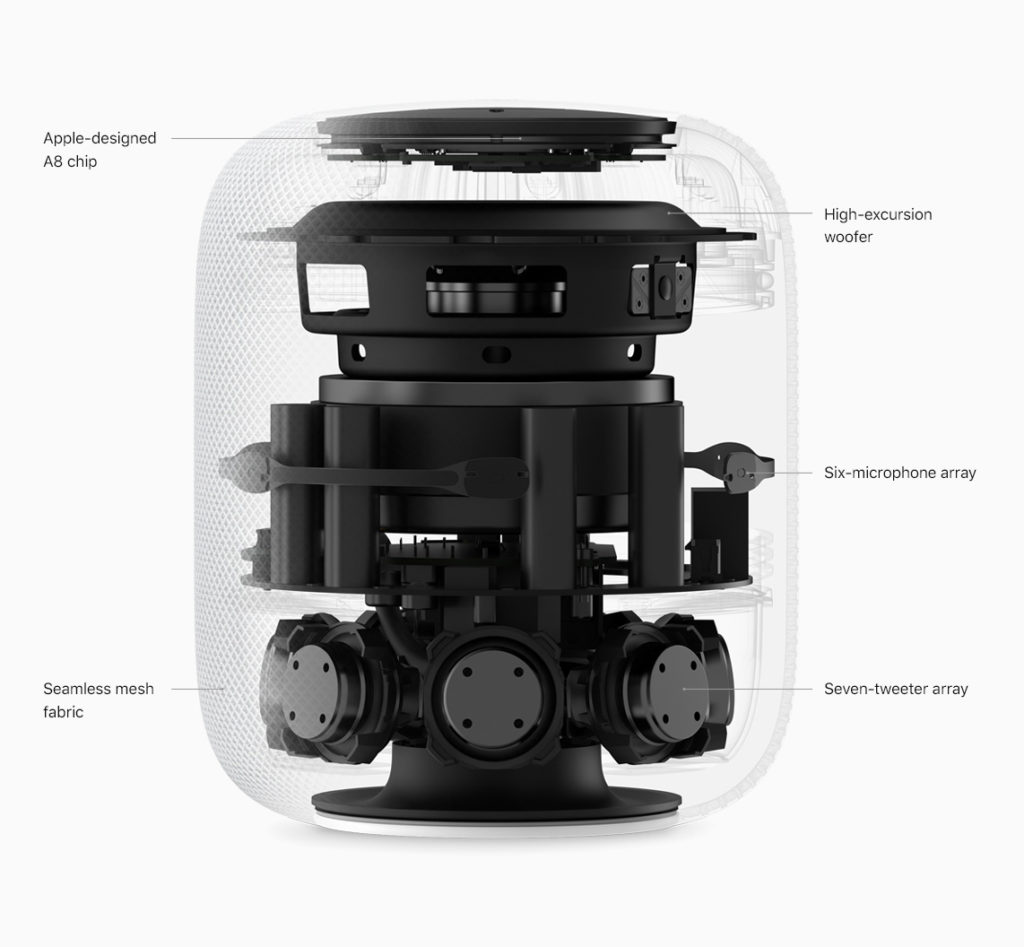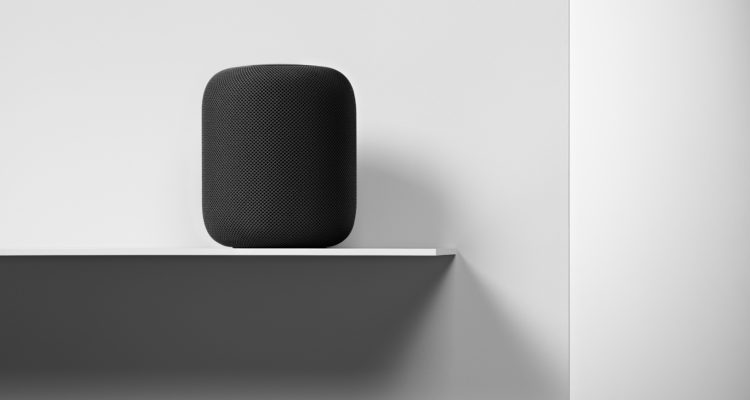While Amazon Echo and Google Home have sold millions of smart speakers over the years, we’ve all been waiting patiently to see what Apple’s answer would be. The Apple HomePod has been talked about for some time and unfortunately fallen on some untimely delays. But alas, Apple has announced the HomePod release date will be February 9 and the company will start taking preorders on January 26th. The price is a whopping $349.
Apple appears to be banking heavily on sound quality to differentiate themselves from the other smart speakers on the market. The HomePod will feature a 4-inch woofer to provide bass and seven beam-forming tweeters for acoustics. Some who have listened to the HomePod state it’s sound comes close to what Sonos is offering. They’ll need every bit of audio quality they claim to have to make up for the massive price difference between the HomePod and the Google Home and Amazon Echo speakers.

Despite being a higher quality speaker, there does seem to be concern as to what the HomePod will be able to do at launch. We know it’ll work with Apple Music. But there doesn’t appear to be any sign that it’ll work with Spotify, Pandora, Tidal, or Amazon Music. The same goes for radio apps like iHeartRadio, SiriusXM, and TuneIn. While you should be able to push these to your speaker from your phone, it’s a much different experience from their competitors.
We also know that some important features won’t be available at launch. AirPlay 2 will not be available on the HomePod at launch. Multi-room audio will be added through an update later in the year. And stereo playback for those who have multiple HomePods in the same room will also will have to wait.
It’s not all bad news though with the HomePod. A microphone to talk with Siri will allow you to control your HomeKit enabled devices. It has a powerful A8 chip inside and 1GB of RAM which should future-proof the smart speaker for years to come. A 272 x 340 LED matrix touchscreen display sits on top as well.
Still, it seems like an uphill battle for Apple at this point. Millions of smart speakers were sold over the holiday season and the $349 price point is $300 more than the Google Home Mini and Amazon Echo Dot. It would be quite expensive to put a HomePod in every room of your house if home automation is your goal. It will be interesting to see if Apple puts out a mini HomePod in the future for this purpose.
For those with a glass half full perspective, Apple does have the privacy angle going for them. Both Alexa and Google Assistant stores everything you ask them in their database under your profile. Apple on the other hand sends an anonymous Siri ID with every request and encrypts the communication. This may be important to those who don’t feel comfortable with a microphone on in their home.
The launch of the Apple HomePod should change the smart home landscape a bit. I personally feel that Apple is looking to compete more with Sonos than they are with Google or Amazon at this time. But it’ll come down to whether they can get adoption from their loyal customer base and what future software updates to the product will entail. It should be a fun ride.

